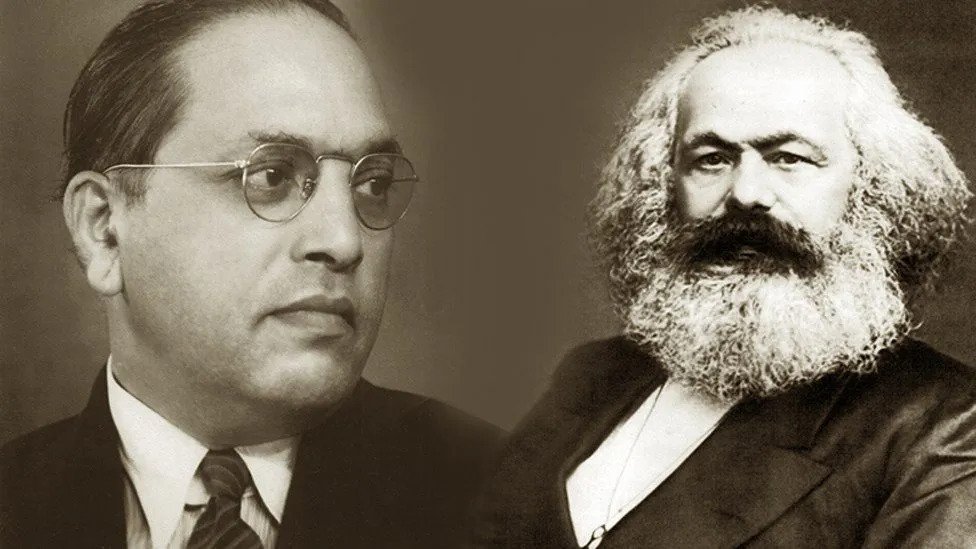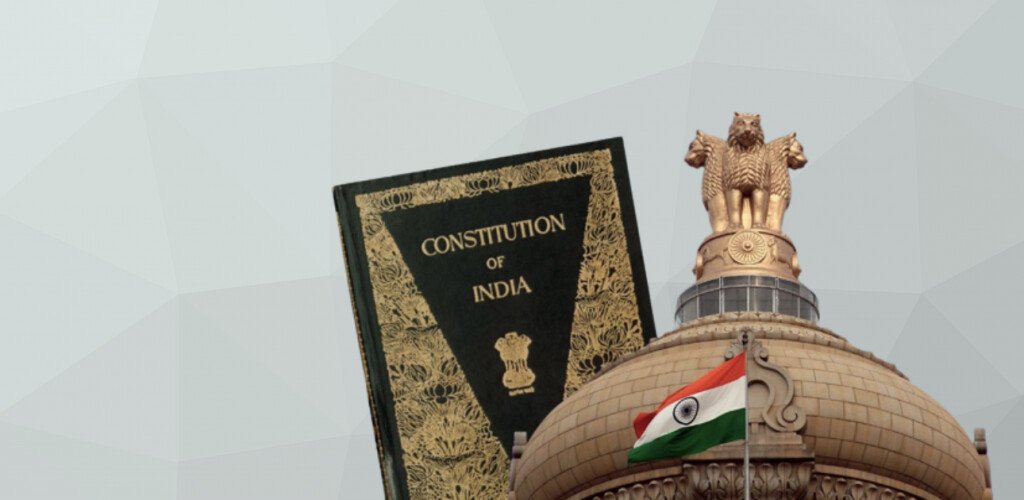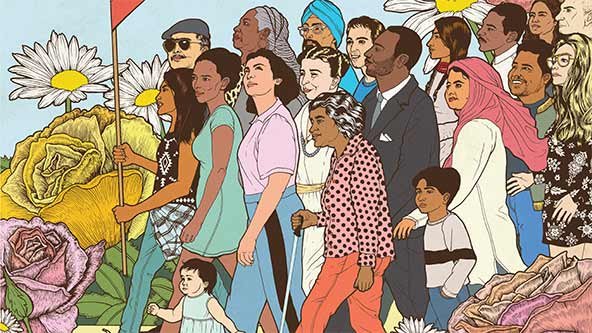By: Uttam Kumar Verma
The Narendra Modi-led Union Government professes the credo of ‘minimum government, maximum governance’, popularized and propagandized by large sections of mainstream news media and the ideologues of English-speaking public officers who usually support government decisions in every step. This is another example of ‘Modinomics’, which comes up with new ideas on a regular basis to decisively transform our country on the path of illusionary progress.
While explaining this phenomenon, Modi remarked on February 24, 2021 that the government has “no business to be in business”. But in a democratic system of governance, the government is not appointed to do business; the main goal of a democratically-elected government should be to reduce poverty, inequality, and social discrimination faced by persons with disability and from marginalized communities in their daily lives.
The government is not a private entity whose main aim is to make maximum profit, in the pursuit of which it can pursue costs reductions such as cutting down its workforce and salaries, among other means. The government is elected for the welfare and prosperity of all citizens. But does the government, by pushing towards privatization and disinvestments of public sector assets, aid public prosperity, especially the prosperity of people with disabilities? Can their welfare be ensured with minimum government and maximum governance?
The private sector is apathetic towards giving employment to persons with disabilities. It denies job opportunities just for the fact that a candidate suffers from any kind of disability. Its position derives from the same old mindset which believes that a person with a disability cannot do anything; they only need sympathy and food for their survival. In the era of technological and scientific evolution, these ideas still prevail in the minds of individuals who are working and possessing authority in the private sector.
It doesn’t mean that the attitude of people in the public sector and society, in general, is any different regarding people with disabilities. But the problem with the private sector is that in the name of merit, it excludes people from Scheduled Tribes (ST), Scheduled Castes (SC), Other Backward Classes (OBC), other minority groups and people with disabilities.
The Rights of Persons with Disabilities Act, 2016 mandates four per cent reservation in jobs in the government sector for persons with disabilities, but the private sector was not assigned any kind of responsibility for giving jobs to persons with disabilities. Because of the free hand offered to the private sector, it has never cared for employability and equal opportunity for people with disabilities.
Periodically, organizations working for the welfare of persons with disabilities have demanded of the government that the private sector also be given legal responsibility to employ persons with disability. For instance, in February last year, The Hindu reported that a group of 94 persons with disabilities affiliated to the Tamil Nadu Association for the Rights of All Types of Differently Abled and Caregivers demanded that government enact a special law providing five per cent reservation for persons with disabilities in employment in the private sector.
The private sector has never been responsible for bringing any kind of transformative change in the lives of people with disabilities. In an era of economic crises and job losses, the government is pushing for more privatization, and the policy of disinvestment brought by the Modi government will have a drastic negative impact on people with disabilities.
Now I will highlight the necessity of the public sector for the growth and uplifting of persons with disability. For their economic independence, the public sector has been playing a vital role, which will cease with the arrival of the private sector.
The public sector has followed the reservation policy for the employment in public sector units and institutions, which has directly benefited several persons with disability and contributed towards their economic independence. With their economic independence, they have earned respectable positions in society, which was absent earlier. In the not-so-distant past, music and begging were their only source of income.
When India got its freedom, the Constitution did not have any provision for persons with disabilities. Even the government only began thinking about the welfare and employment of persons with disabilities about 30 years of independence. In 1977, it announced three percent reservation in lower ranking (C and D category) government jobs. Reservation in Category A and B government jobs were started only after the passage of the Persons With Disabilities (Equal Opportunities, Protection of Rights and Full Participation) Act, 1995, which mandates three percent reservation in government jobs.
The provision of reservations greatly helped persons with disabilities get jobs in government services. As a result, their entry into the civil services, which are considered very prestigious in Indian society, became possible.
With the arrival of the scientific and technological revolution, they became capable of performing any professional duties and responsibilities allotted to them. For instance, the invention of screen reader technology and screen reading software such as Jaws and NVDA (Non-Visual Desktop Access) was instrumental in providing persons with visual disabilities equal opportunities among their sighted counterparts, many of whom consider them inferior and incapable of performing anything.
The government’s relaxation on age, payment of application fee and examination fee, standards of suitability, and the provision of scribes helped persons with disabilities gain enough confidence to appear for competitive exams, and to pass and serve government institutions with their fullest capacity.
The three percent reservation policy surely helped them to achieve economic independence. It doesn’t mean that the government policy was fully implemented at the ground level and that persons with disability were employed in accordance with statutory requirements. In 2009, the World Bank published a report titled People with Disabilities in India: From Commitments to Outcomes on the request of the Union Government. The report mentions that only 10.2 per cent of all posts in Ministries/Departments and the public sector had been identified as suitable for disabled people, and only 0.37 per cent vacancies were filled in ministries and 0.44 per cent were filled in the public sector.
In the sixth chapter of this report it was mentioned that: “At present, the identification of jobs appropriate for them is done in an ad hoc and arbitrary manner. There is a need to have this task performed by a professional group with the involvement of Disabled Peoples’ Organizations. The backlog of vacancies for persons with disability continues to be large, both at the Centre and in the States. This backlog should be cleared in a time bound manner and in a campaign mode. Similarly, a suitable scheme to provide incentives to promote employment for disabled people in the private sector should be put in place as enjoined in Section 41 of The Persons with Disabilities (Equal Opportunities, Protection of Rights and Full Participation) Act, 1995.”
The report not only suggested the implementation of three per cent reservation in jobs in government institutions and the public sector but also that the private sector should also be held liable for giving jobs to persons with disabilities. However, the Rights of Persons with Disabilities Act enacted in 2016 left the private sector scot-free to continue with its discriminative policies. But in the government sector, the reservation quota for jobs was increased to four per cent from three, and the categories of disability eligible to avail reservation were also increased from seven to 21.
Banks and the Railways are the two major sectors that give employment to persons with disabilities on a large scale. The possibility of working in banks and railways arises with the implementation of the reservation policy assigned in the 2016 Act. Although they have not implemented the exact percentage mandated in the Act, still these two institutions have generated more employment for persons with disabilities than any other public sector institution.
Unfortunately, the increasing amount of non-performing assets, coupled with the merger of public sector banks, has reduced jobs in the banking sector. Similarly, railway recruitment has also been slowed down by the Union Government. Its decision to privatize most of our public sector undertakings (PSUs), including banks and railways, has created a crisis for the survival of these institutions. With the privatization of banks and railways, persons with disabilities employed by them might lose their hard-earned jobs. In the future, with the absence of a reservation policy in the private sector, they may never get employment, despite possessing the abilities and skills.
After its victory in the 2019 general election, the Modi government adopted the policy of disinvestment and privatization on a massive scale, where almost every month, our bureaucrats came out with a list of new PSUs which will be privatised in order to generate money for the targeted amount of Rs. 1.75 trillion, on the pretext that this will be a ‘game changer’ for the Indian economy.
But no one can accurately explain how this policy of disinvestment will be beneficial for the Indian economy. Will it generate employment, demand for goods and services, increased tax returns, and/or something else? But I am sure that the selling of PSUs, which has been termed as ‘disinvestment’ or ‘monetization’ in order to hide its negative connotation, will drastically impact the lives of persons with disabilities. They will be left at the mercy of private sector employers, whose main aim is to reduce human work in preference to technology and to create a large amount of wealth for their masters.
The government has already passed an Act that will allow the privatisation of State-owned general insurance companies. Bankers had protested the introduction of a bill in Parliament which seeks to hand over public sector banks to private companies. Similarly, from time to time, workers of other PSUs have also protested against the privatization of their institutions, which was never reported in the media.
The All India Bank Officers’ Confederation, while protesting against the privatization of banking and the Banking Laws (Amendment) Bill, 2021, said: “PSB mergers have brought down the number of public sector banks from 27 to 12, setting in motion the process of employee retrenchment and bank branch closures; total employee strength of PSBs has fallen from 8.57 lakh in March 2017 to around 7.7 lakh in March 2021”. It means that more than one lakh jobs have been reduced in the banking sector.
Imagine that with bank mergers, one lakh Indians have already been left out from jobs in the banking sector. In this, with the calculation of four per cent of 1,00,000, more than 4,000 jobs for persons with disability have been lost directly.
People with disabilities have to struggle every day in their life: from using public transport to finding companionship, from finding education to finding jobs, from finding their voice to finding their place in the world. In all of this, the privatization of public sector units will serve as another blow toward their struggle for empowerment. (IPA Service)







